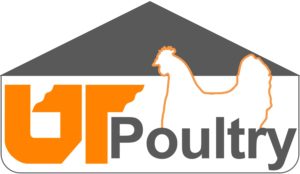Tom Tabler
Cows at three California dairies located in the Central Valley have recently tested positive for highly pathogenic avian influenza (HPAI). These are the first confirmed cases in California. The herds began showing clinical signs on August 23-25, 2024. Samples from the three sites were submitted to the California Animal Health and Food Safety laboratory network for preliminary determination, and then submitted to the National Veterinary Services Laboratory, where the test results were confirmed on August 30, 2024. The primary concern is for dairy workers that come into close contact with infected dairy cows. As of September 10, 2024, the CDC has confirmed 15 human cases of HPAI in the U.S. Four were following exposure to dairy cows, 10 following exposure to poultry, and one with no known animal exposure.
The detection of HPAI in dairy cattle herds is no longer unexpected. As of September 10, 2024, 197 dairy herds in 14 states have been confirmed with HPAI. Table 1 lists states with confirmed HPAI cases in dairy herds and the number of herds affected. In March 2024, the first U.S. detection in dairy cattle was confirmed in Texas, most likely the result of a single spillover event from wild birds. Since then, the USDA has linked new detections in cattle to the interstate and regional movement of infected or contaminated livestock, people, and equipment. Most infected dairy cattle are able to fully recover from an HPAI infection within a few weeks. Dairy herds may show clinical signs of infection such as reduced milk production; thicker, concentrated colostrum-like milk; a decrease in feed intake and rumination; clear nasal discharge; abnormal, tacky or loose manure; lethargy; dehydration; and fever.
Table 1. States with confirmed HPAI cases in dairy herds.
| State | Number of confirmed cases |
| California | 3 |
| Colorado | 64 |
| Idaho | 31 |
| Iowa | 13 |
| Kansas | 4 |
| Michigan | 28 |
| Minnesota | 9 |
| New Mexico | 9 |
| North Carolina | 1 |
| Ohio | 1 |
| Oklahoma | 2 |
| South Dakota | 7 |
| Texas | 24 |
| Wyoming | 1 |
These recent confirmations in California re-emphasize the importance of good biosecurity to help protect all poultry and livestock in Tennessee. Fall migration season is picking up (Figure 1) and will only increase over the next few months.

Remain vigilant and practice good biosecurity when working with your flocks or herds. There is no treatment or cure for HPAI H5N1 and there are currently no vaccines available to prevent the disease. Biosecurity is our best defense at this time. The Centers for Disease Control recommends that:
- People should avoid exposures to sick or dead animals, including wild birds, poultry, other domesticated birds, and other wild or domesticated animals (including cows), if possible.
- People should also avoid exposures to animal manure, bedding (litter), unpasteurized (“raw”) milk, or materials that have been touched by, or close to, birds or other animals with suspected or confirmed A(H5N1) virus, if possible.
- People should not drink raw milk. Pasteurization kills A(H5N1) viruses, and pasteurized milk is safe to drink.
- People who have job-related contact with infected or potentially infected birds or other animals should be aware of the risk of exposure to avian influenza viruses and should take proper precautions. People should wear appropriate and recommended personal protective equipment when exposed to an infected or potentially infected animal(s). CDC has recommendations for worker protection and use of personal protective equipment (PPE).
- CDC has interim recommendations for prevention, monitoring, and public health investigations of avian influenza A(H5N1) virus infections in people.
Following these recommendations is central to reducing a person’s risk and containing the overall public health risk. Do not expect the threat to lessen in the near future. As fall migration season picks up, the risk of additional HPAI cases, particularly in poultry, will likely increase. That means biosecurity programs and increased vigilance must be ongoing throughout the coming months.
UT Animal Science/Extension continues to monitor the situation and is committed to supporting our stakeholders and clientele throughout this evolving event. As stewards of animal health and welfare across the livestock and poultry industries, our team of experts are constantly reviewing this changing and challenging situation and we will continue to provide updates as necessary.
